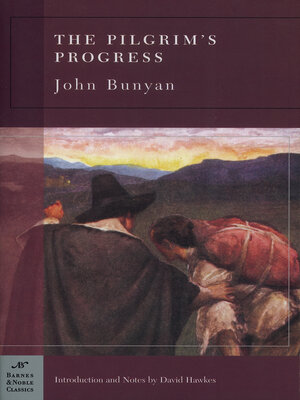The Pilgrim's Progress (Barnes & Noble Classics Series)
ebook ∣ Barnes & Noble Classics
By John Bunyan

Sign up to save your library
With an OverDrive account, you can save your favorite libraries for at-a-glance information about availability. Find out more about OverDrive accounts.
Find this title in Libby, the library reading app by OverDrive.



Search for a digital library with this title
Title found at these libraries:
| Library Name | Distance |
|---|---|
| Loading... |
The Pilgrims Progress, by John Bunyan, is part of the Barnes & Noble Classics series, which offers quality editions at affordable prices to the student and the general reader, including new scholarship, thoughtful design, and pages of carefully crafted extras. Here are some of the remarkable features of Barnes & Noble Classics:
Faith, Hope, Mercy, Envy, Ignorance, Guilt: These are not abstract concepts, but the names of vividly imagined, sharply drawn human characters encountered by Christian, the hero of The Pilgrim's Progress. In John Bunyan's seventeenth-century allegory of the soul's search for salvation, each step along the way becomes a dramatic rendering of an inner state of the human psyche. As Christian journeys from "the wilderness of this world" to the glory of the Celestial City, he confronts a seemingly endless array of temptations, threats, and dangers, including the nearly irresistible allure of material splendor at Vanity Fair; the crushing psychological burden of depression and despair in the Slough of Despond; and the fear and uncertainty that eats away at faith in Doubting Castle.
This edition includes both the first and second parts of The Pilgrim's Progress, which collectively reflect the feverish intensity of Bunyan's religious beliefs. What remains significant is Bunyan's ability to transform this intensity into an allegory that speaks to people of all faiths and all eras.
David Hawkes is Associate Professor of English at Lehigh University. His books include Idols of the Marketplace (2001) and Ideology (second edition 2003), and he has contributed articles to The Nation, the Times Literary Supplement, and the Journal of the History of Ideas.







